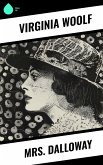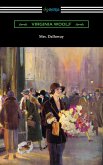Virginia Woolf's "Mrs. Dalloway" masterfully encapsulates the inner lives of its characters through stream-of-consciousness narrative, exploring the complexities of post-World War I England. Set against the backdrop of a single day in June 1923, the novel intricately weaves together the thoughts and memories of Clarissa Dalloway, a high-society woman preparing for a lavish party, and Septimus Warren Smith, a war veteran grappling with trauma. Woolf's precise prose and innovative structure reflect the disjointed yet profound nature of human experience, while her use of free indirect discourse invites readers to deeply engage with the characters' perspectives, making them witnesses to the emotional landscapes of time, memory, and societal expectations. As a central figure of the Modernist movement, Woolf's work is profoundly influenced by her observations of the early 20th-century socio-political landscape and her own struggles with mental health. Her background in a literary family and her pioneering thoughts on feminism inform her exploration of identity, time, and mental illness, all of which are poignantly rendered in "Mrs. Dalloway." Through her characters, Woolf addresses the fragmentation of post-war society and encapsulates the intimate connection between individual experiences and broader cultural shifts. "Mrs. Dalloway" is essential reading for anyone interested in the nuances of human consciousness and the interplay of personal and societal dynamics. Woolf's incisive exploration of the psyche and her lyrical narrative style invite readers to reflect on their own perceptions of life, memory, and social conventions. This novel not only serves as a significant work of Modernist literature but also resonates deeply with contemporary issues, making it a timeless mirror for introspection and discussion.
Dieser Download kann aus rechtlichen Gründen nur mit Rechnungsadresse in A, B, BG, CY, CZ, D, DK, EW, FIN, F, GR, HR, H, IRL, I, LT, L, LR, M, NL, PL, P, R, S, SLO, SK ausgeliefert werden.









